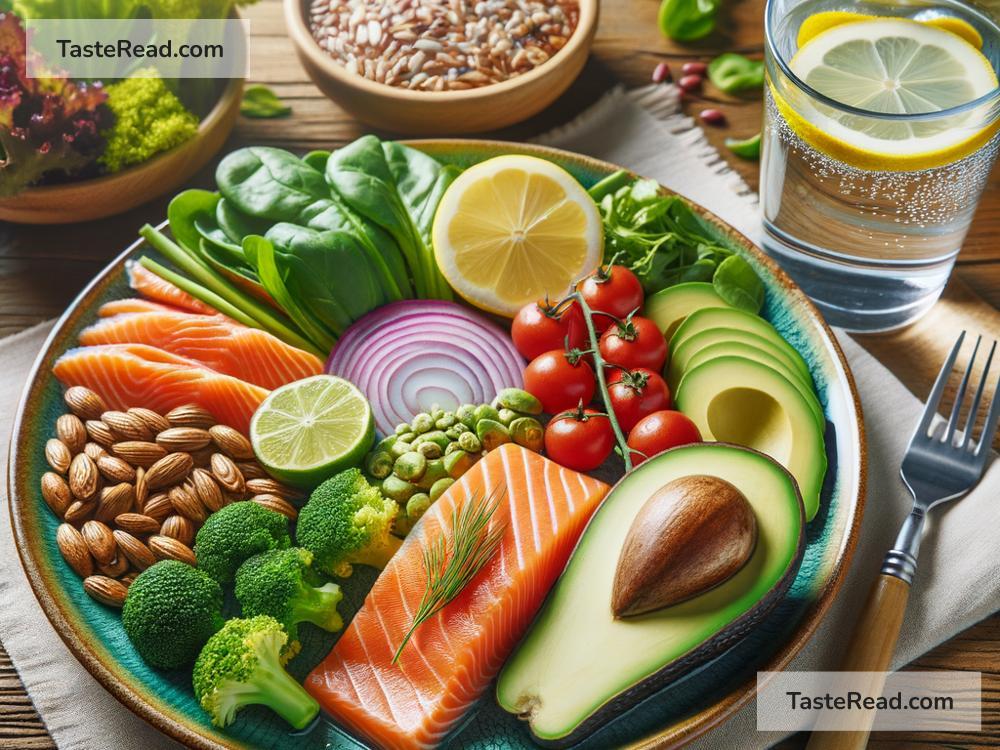The Role of Vitamin B6 in Metabolic Health
Good health often depends on the tiny building blocks that make our bodies run smoothly. Vitamins are one of those essentials, and among them, Vitamin B6 plays a vital role in keeping us healthy. In this blog, we’ll explore what Vitamin B6 is, why it matters to your metabolic health, and how you can make sure you’re getting enough of it. We’ll keep it simple so everyone can understand!
What Is Vitamin B6?
Vitamin B6, also known as pyridoxine, is one of the eight B-vitamins that are water-soluble. This means your body doesn’t store it for long periods and needs a steady supply from foods or supplements. This little vitamin may seem like a small player, but it’s a crucial team member in the body’s system.
It helps your body convert food into energy, supports brain function, produces red blood cells, and builds the chemicals (neurotransmitters) that help your nerves communicate with each other. Essentially, Vitamin B6 is like a multitasking worker—it helps your body do many important jobs at the same time!
What Is Metabolic Health?
Before we dive deeper into why Vitamin B6 is so important for metabolism, let’s quickly take a look at what “metabolic health” means.
Your metabolism is the process by which your body converts food and drink into energy. Metabolic health refers to how well your body performs these tasks to maintain energy, weight, and overall wellness. It’s not just about burning calories; your metabolism also supports countless functions like repairing cells, digesting food, regulating blood sugar, and maintaining hormone levels.
Good metabolic health means your body can efficiently manage these tasks without problems such as high blood sugar, high blood pressure, excessive fat in the liver, or insulin resistance—all conditions that can lead to diseases like diabetes or heart disease.
How Vitamin B6 Supports Metabolic Health
So, how does Vitamin B6 fit into the picture? Here’s how it helps keep your metabolism humming along smoothly:
1. Helps Break Down Proteins, Fats, and Carbohydrates
When you eat food—whether it’s bread, meat, or salad—Vitamin B6 helps your body break down proteins, fats, and carbohydrates into smaller pieces that your cells can use for energy. Without Vitamin B6, your body would struggle to extract energy from food efficiently, leaving you feeling tired and sluggish.
2. Regulates Blood Sugar
Vitamin B6 plays a role in breaking down glycogen, which is like a stored form of sugar in your body. When your body needs quick energy, Vitamin B6 helps release sugar from glycogen stores to keep your blood sugar levels steady. This is especially important if you want to avoid blood sugar spikes and crashes or manage a condition like diabetes.
3. Produces Key Metabolic Enzymes
Enzymes are like tiny machines in your body that help chemical processes happen faster. Vitamin B6 helps produce key enzymes that regulate metabolic reactions. These enzymes not only help process food but also create amino acids, which are essential for repairing tissues, boosting immunity, and supporting other critical functions.
4. Supports Hormonal Balance
Hormones are chemical messengers that tell your body’s systems how and when to work. Vitamin B6 helps produce neurotransmitters like serotonin, dopamine, and norepinephrine, which play a role in controlling mood and energy levels. It also aids in balancing estrogen, progesterone, and other hormones that affect metabolism and overall health.
5. Reduces Inflammation
Chronic inflammation can negatively impact metabolic health, leading to conditions like insulin resistance and obesity. Vitamin B6 has been found to reduce markers of inflammation in the body, helping lower the risk of metabolic disorders and supporting better health.
How Do You Get Enough Vitamin B6?
Vitamin B6 is found in a variety of foods, so eating a balanced diet is the best way to ensure you’re getting enough. Here are some great sources of Vitamin B6:
– Chicken, turkey, and fish: These are rich sources and easy to incorporate into meals.
– Potatoes: Affordable and packed with B6.
– Bananas: A grab-and-go snack and good source of Vitamin B6.
– Whole grains: Think brown rice or oatmeal.
– Soy products: Tofu and soy milk are excellent options.
– Avocados: Tasty and nutrient-dense.
If you find it challenging to get enough Vitamin B6 through food, supplements are also available. However, it’s always best to talk to your doctor before taking any supplements.
Signs of Vitamin B6 Deficiency
While most people get enough Vitamin B6 from food, a deficiency can happen. Here are some symptoms that might indicate you’re not getting enough Vitamin B6:
– Fatigue or weakness
– Irritability or mood changes
– Cracked lips or mouth sores
– Tingling in your hands or feet
– Depression or confusion
Individuals with certain medical conditions (such as kidney disease or autoimmune diseases) or those who drink excessive amounts of alcohol are more likely to have a deficiency.
Final Thoughts
Vitamin B6 might be small, but don’t underestimate its importance in maintaining metabolic health! By helping your body turn food into energy, balancing hormones, reducing inflammation, and supporting overall wellness, it’s an essential tool for staying healthy.
Make sure your diet includes foods rich in Vitamin B6, and pay attention to your body’s signals. Always consult your doctor if you’re unsure about your nutrient intake or need advice about supplements. After all, a well-functioning metabolism is the foundation for a healthy and energetic life!
Stay healthy, eat well, and give your metabolism the love it deserves—starting with enough Vitamin B6!


